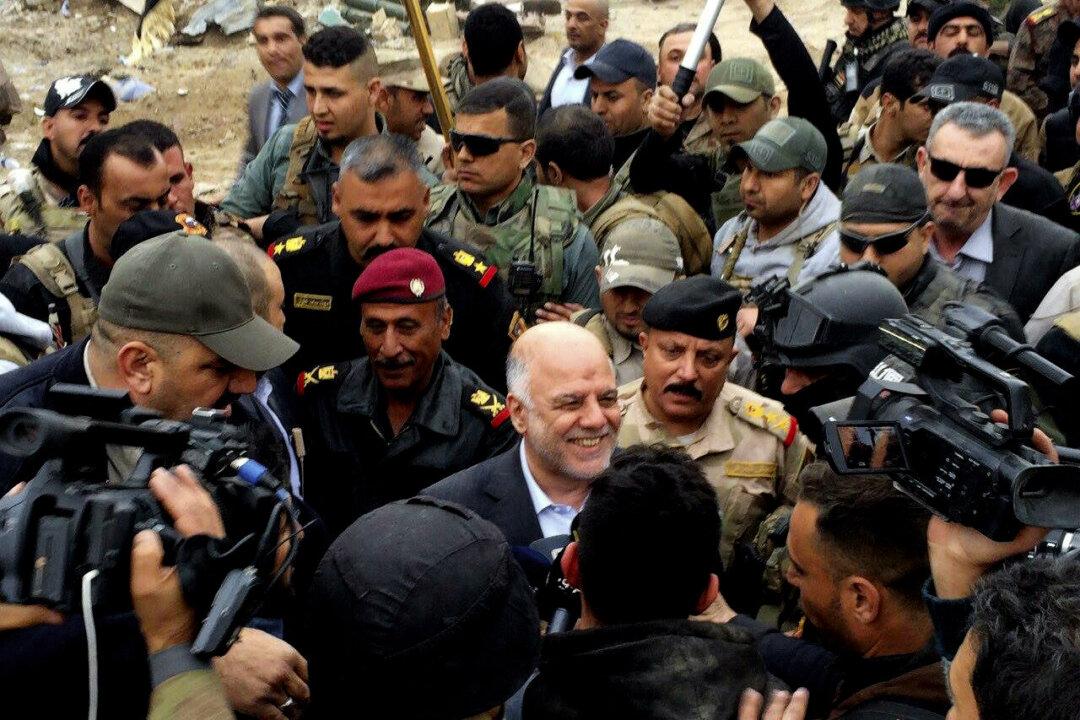BAGHDAD—A triumphant Iraqi prime minister on Tuesday, Dec. 29, toured the western city of Ramadi, just a day after government troops routed ISIS extremists from the area and recaptured a key government complex.
Iraqi state TV reported that Haider al-Abadi was in Ramadi but offered no further details. But an Iraqi military commander, Brig. Gen. Ahmed al-Belawi, told The Associated Press that the prime minister kicked off the visit by meeting security and provincial officials for the latest updates.
Across the city meanwhile, military engineering teams were clearing bombs from the streets and nearby buildings, al-Belawi said, even as sporadic clashes were underway in outlying parts of the city.
Ramadi, the Anbar provincial capital, fell to the Islamic State in Iraq and Syria (ISIS) in May, marking a major setback for Iraqi forces and the U.S.-led campaign. The Baghdad government was quick to announce a counteroffensive to retake the city, but attempts repeatedly stalled.
Then in November, al-Abadi’s forces announced a major push to recapture Ramadi, warning residents to leave and advancing quickly across the Euphrates River.





